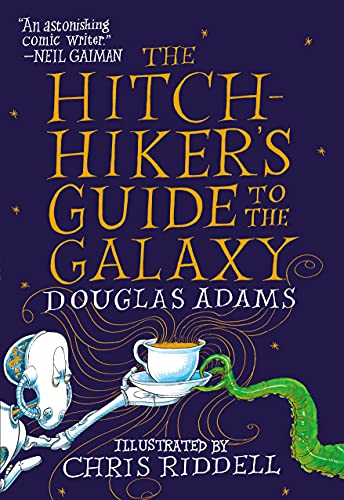In January, I read forty-one books. (Forty books and one Bible). I read plenty of new-to-me books this month, but I also fit in some time for rereading. There were some pleasant surprises, books that exceeded my expectations for awesomeness. I wholeheartedly recommend the Cookie Chronicles by Matthew Swanson. And a few disappointments as well, I so wish that My Fine Fellow had been a 'wow' for me because I love and adore My Fair Lady so much.
My viewing also inspired me to pick up some books. I read Hawaii, Big Fish, and A Raisin in the Sun after watching the movies.
Books Read for Becky's Book Reviews
1. The False Prince (Ascendance #1) Jennifer A. Nielsen. 2012. 342 pages. [Source: Library]4. Road of Bones (Billy Boyle #16) James R. Benn. 2021. [September] 312 pages. [Source: Review copy]
5. The Captive Kingdom. (Ascendance #4) Jennifer A. Nielsen. 2020. [October] 374 pages. [Source: Library]
6. Once Upon A Camel. Kathi Appelt. 2021. [September] 336 pages. [Source: Library]
7. The Shattered Castle (Ascendance #5) Jennifer A. Nielsen. 2021. [October 19] 332 pages. [Source: Library]
8. The Hitchhiker's Guide to the Galaxy. Douglas Adams. Illustrated by Chris Riddell. 1979/2021. 289 pages. [Source: Library]
9. Waking Romeo. Kathryn Barker. 2022. [January] 384 pages. [Source: Library]
10. A Raisin in the Sun. Lorraine Hansberry. 1959/2011. 160 pages. [Source: Library]
11. The Accidental Time Machine. Joe Haldeman. 2007. 278 pages. [Source: Library]
12. Hawaii. James A. Michener. 1959. 1136 pages. [Source: Library]
13. Big Fish. Daniel Wallace. 1998. 192 pages. [Source: Library]
15. My Fine Fellow. Jennieke Cohen. 2022. [January] 352 pages. [Source: Review copy]
16. The Chilbury Ladies' Choir. Jennifer Ryan. 2017. 371 pages. [Source: Library]
Books Read for Young Readers
1. Forty Winks: A Bedtime Adventure. Kelly DiPucchio. Illustrated by Lita Judge. 2021. [October 26] 40 pages. [Source: Review copy]
2. Poems from When We Were Very Young. A.A. Milne. Illustrated by Rosemary Wells. 2021. [October 26] 80 pages. [Source: Library]
3. Captain Cat and the Pirate Lunch. (Ready to Read Pre-Level 1) Emma J. Virjan. 2021. [December] 32 pages. [Source: Library]
4. Motor Mouse Delivers. Cynthia Rylant. Illustrated by Arthur Howard. 2020. [August] 72 pages. [Source: Library]
5. The Quest for Snacks (Cat & Cat Adventures #1) Susie Yi. 2021. [September] 96 pages. [Source: Library]
6. Bright Brown Baby. Andrea Davis Pinkney. Illustrated by Brian Pinkney. 2022. [January] 64 pages. [Source: Library]7. Chester's Way. Kevin Henkes. 1988. 32 pages. [Source: Library]
8. The New Class (Ballet Bunnies #1) Swapna Reddy. Illustrated by Binny Talib. 2021. 96 pages. [Source: Library]
9. Let's Dance (Ballet Bunnies #2) Swapna Reddy. Illustrated by Binny Talib. 2021. 96 pages. [Source: Library]10. Bear is a Bear. Jonathan Stutzman. Illustrated by Dan Santat. 2021. [September] 48 pages. [Source: Library]
11. Ben Yokoyama and the Cookie of Doom. (Cookie Chronicles #1) Matthew
Swanson. Illustrated by Robbi Behr. 2021. 304 pages. [Source: Library]
12. Yes & No. Elisha Cooper. 2021. [April] 40 pages. [Source: Library]
13. Monday: Into the Cave of Thieves. (Total Mayhem #1) 2021. [August] 208 pages. [Source: Library]14. ¡Mambo Mucho Mambo! the Dance That Crossed Color Lines. Dean Robbins. Illustrated by Eric Velásquez. 2021. [November] 40 pages. [Source: Library]
15. I Wish I Had a Wookiee: And Other Poems For Our Galaxy. Ian Doescher.
Illustrated by Tim Budgen. 2021 [September] 128 pages. [Source: Library]16. Ben Yokoyama and the Cookie of Endless Waiting. (Cookie Chronicles #2)
Matthew Swanson. Illustrated by Robbi Behr. 2021. 304 pages. [Source:
Library]
17. Tally Tuttle Turns Into a Turtle. (Class Critters #1) Kathryn Holmes.
Illustrated by Ariel Landy. 2021. [August] 128 pages. [Source: Review
copy]
Books Read for Operation Actually Read Bible
1. After Emmaus: How the Church Fulfills the Mission of Christ. Brian J. Tabb. 2021. [November] 208 pages. [Source: Review copy]
2. God Is My Hiding Place: 40 Devotions for Refuge and Strength. Corrie ten Boom. 2021. [October] 174 pages. [Source: Review copy]3. The Dangers of a Shallow Faith. A.W. Tozer. Edited by James L. Snyder. 2012. 219 pages. [Source: Bought]
4. The Healing of Natalie Curtis. Jane Kirkpatrick. 2021. [September] 368 pages. [Source: Review copy]5. A Dozen Things God Did With Your Sin (And Three Things He'll Never Do). Sam Storms. 2022. [January] Crossway. 225 pages. [Source: Review copy]
6. Walking As He Walked. Joel R. Beeke. 2002/2007. 133 pages. [Source: Bought]
7. Tacos for Two. Betsy St. Amant. 2021. [October] 336 pages. [Source: Review copy]
Bibles Read for Operation Actually Read Bible
Legacy Standard Bible (Handy Size Edition) Steadfast Bibles (Publisher) 2021. 1665 pages. [Source: Bought]
January Totals
2022 Yearly Totals
© 2022 Becky Laney of Becky's Book Reviews


















